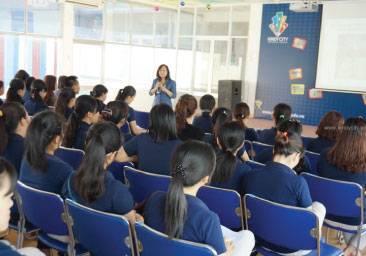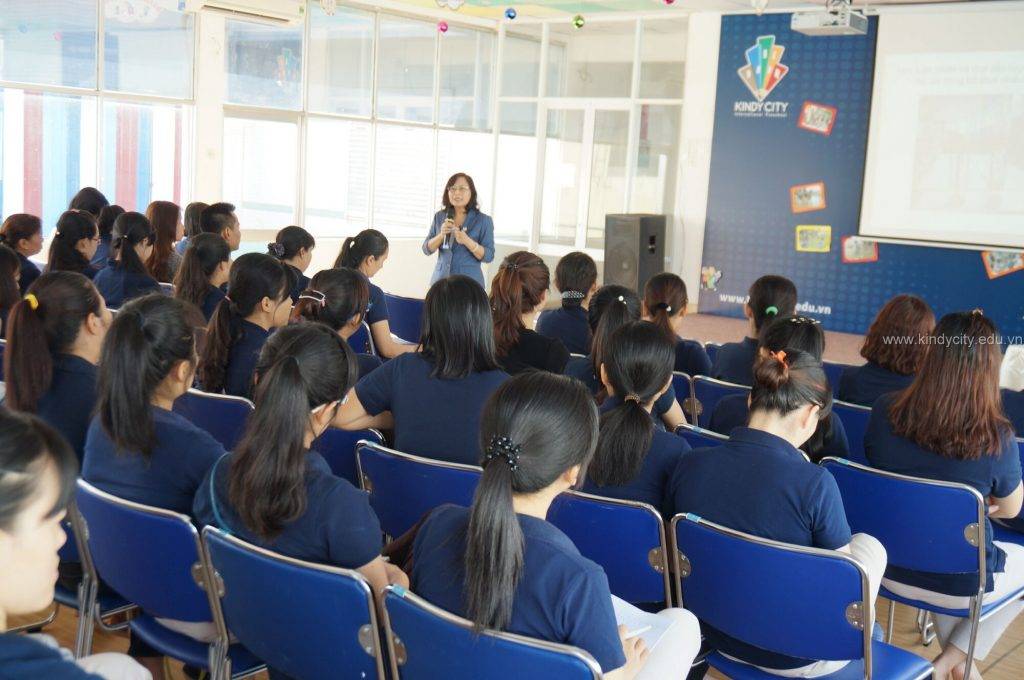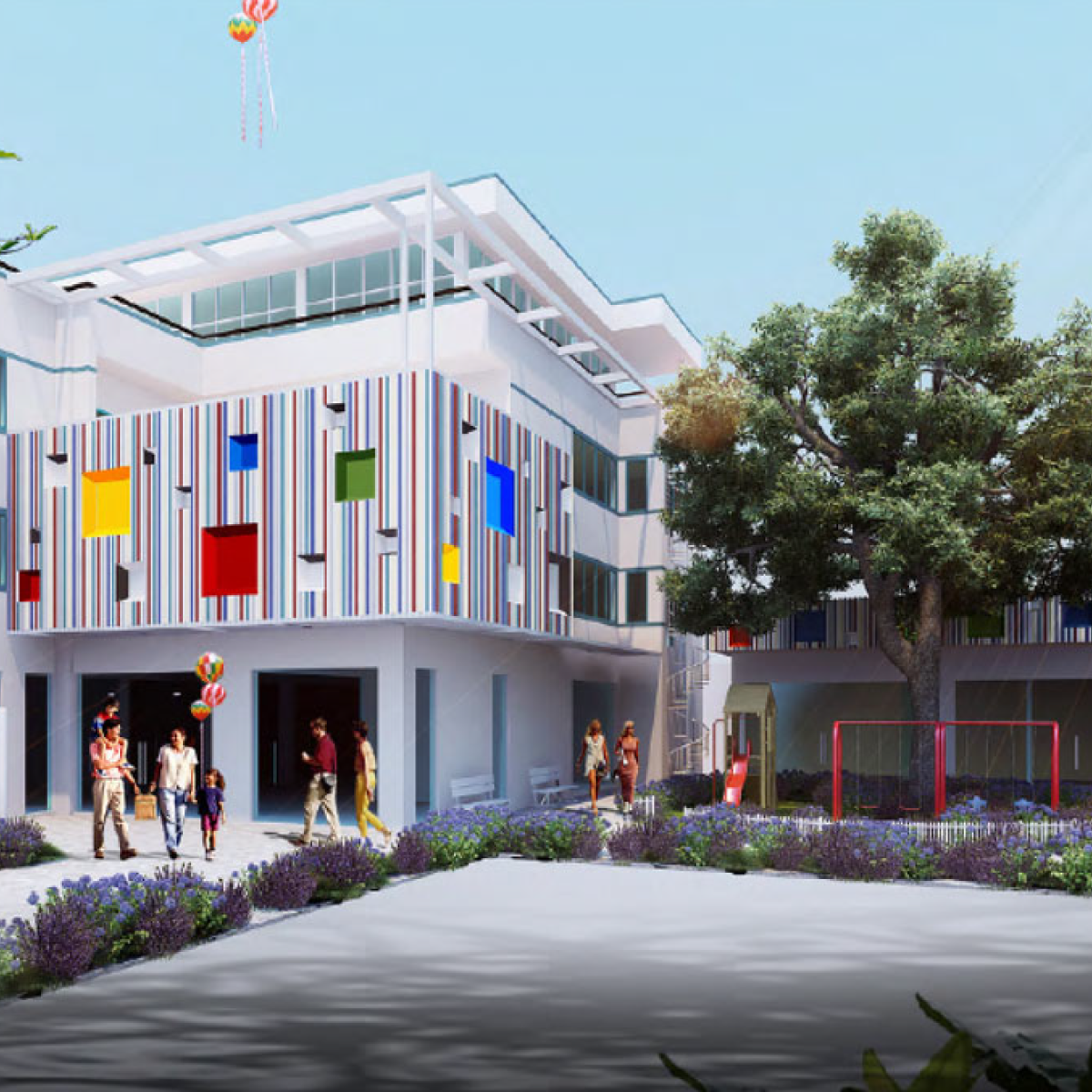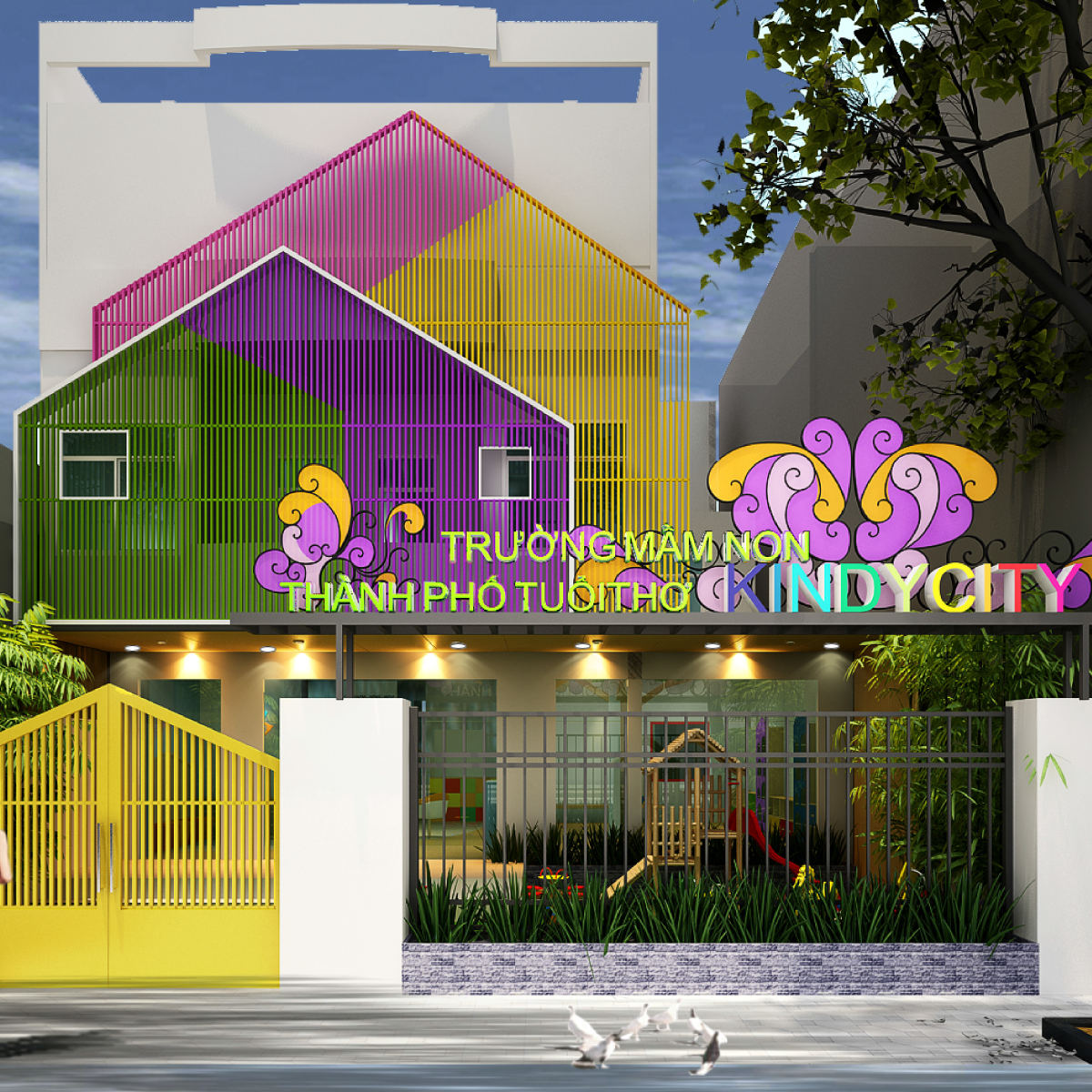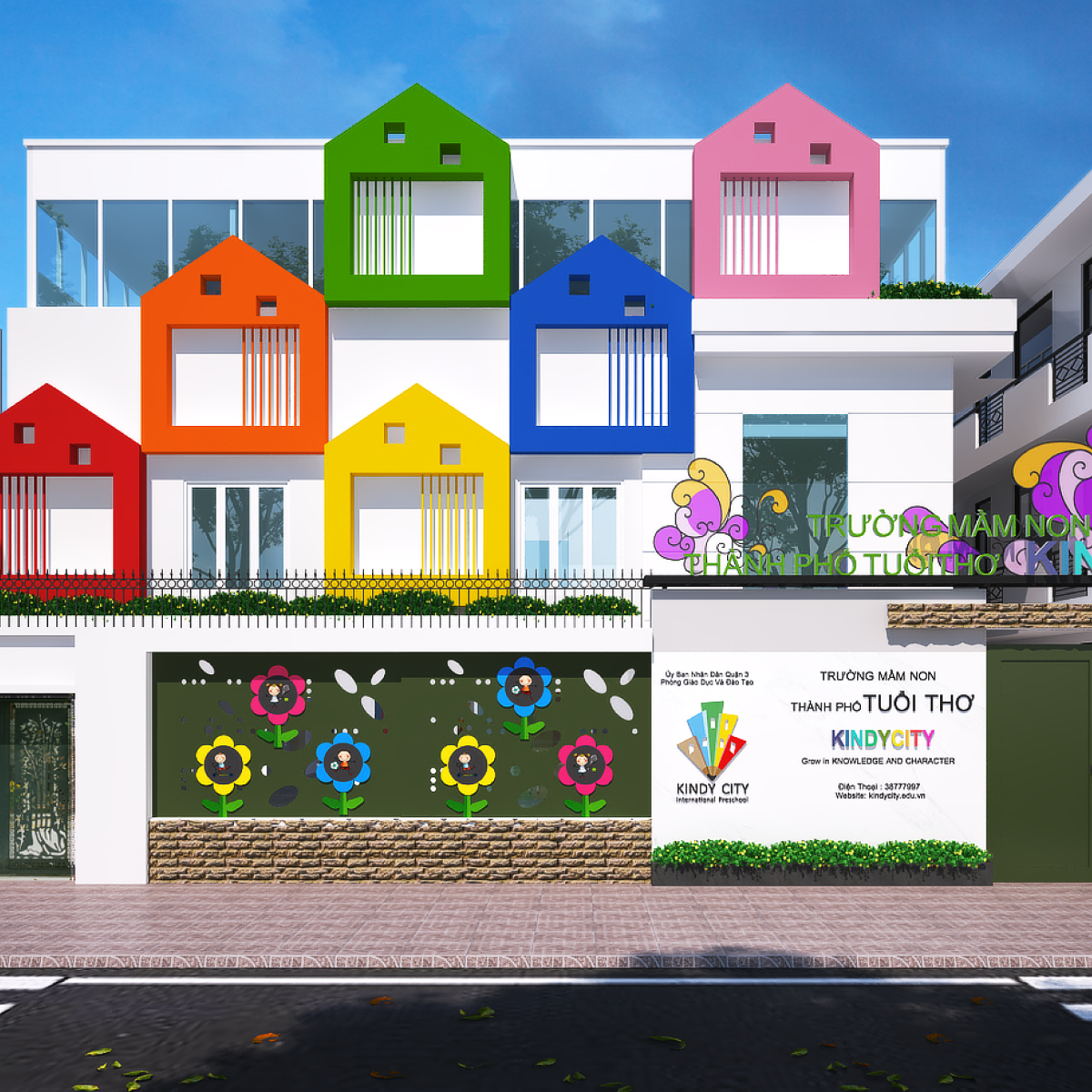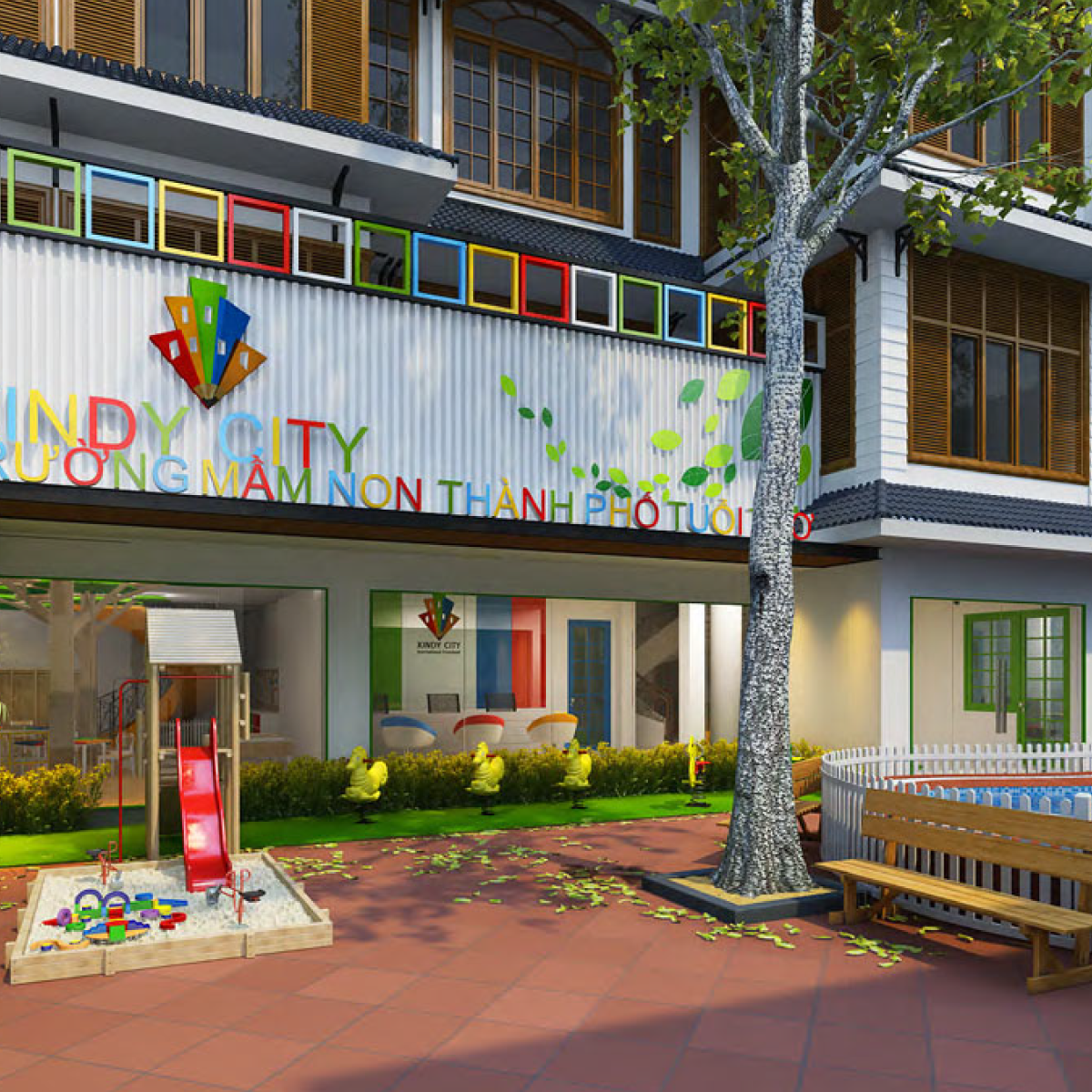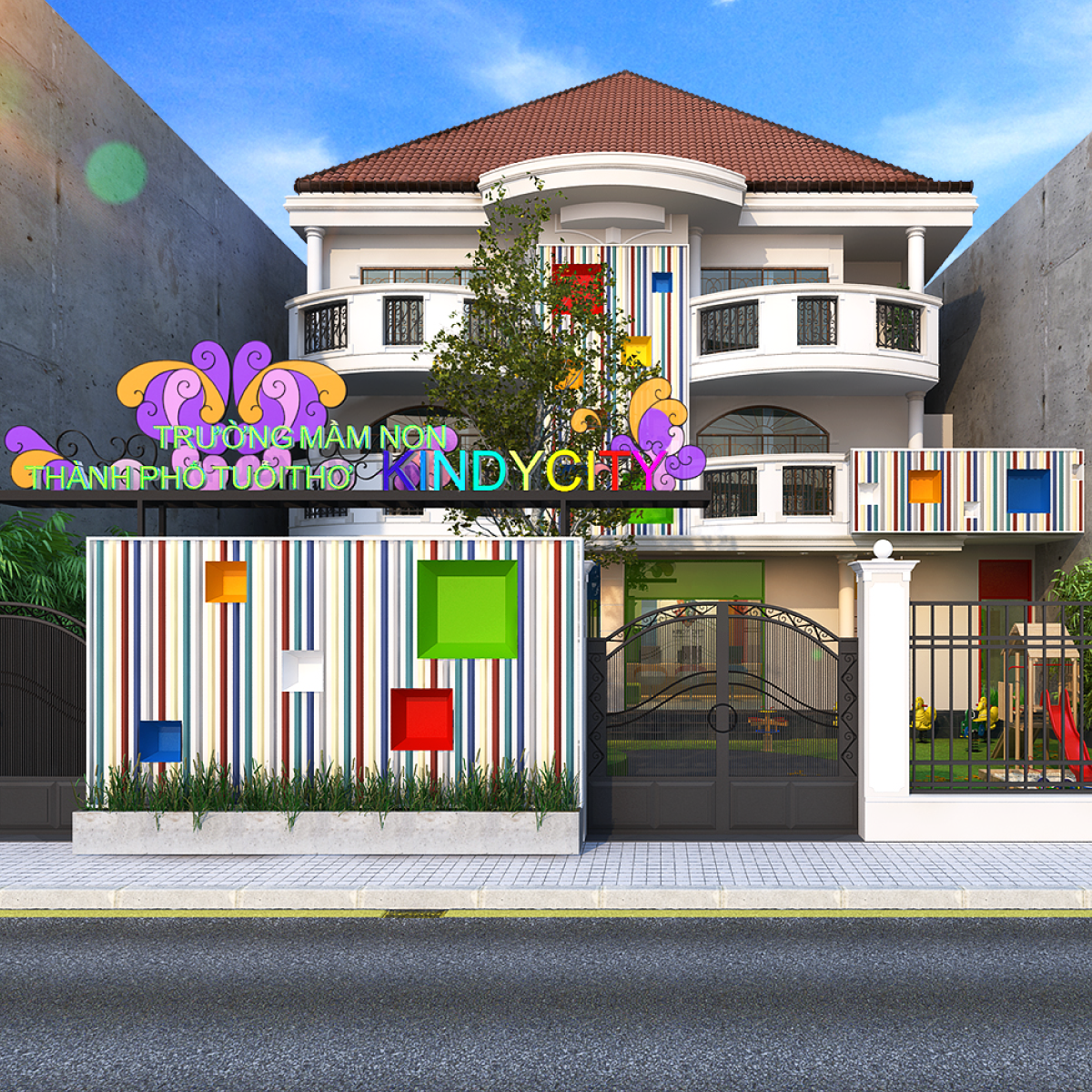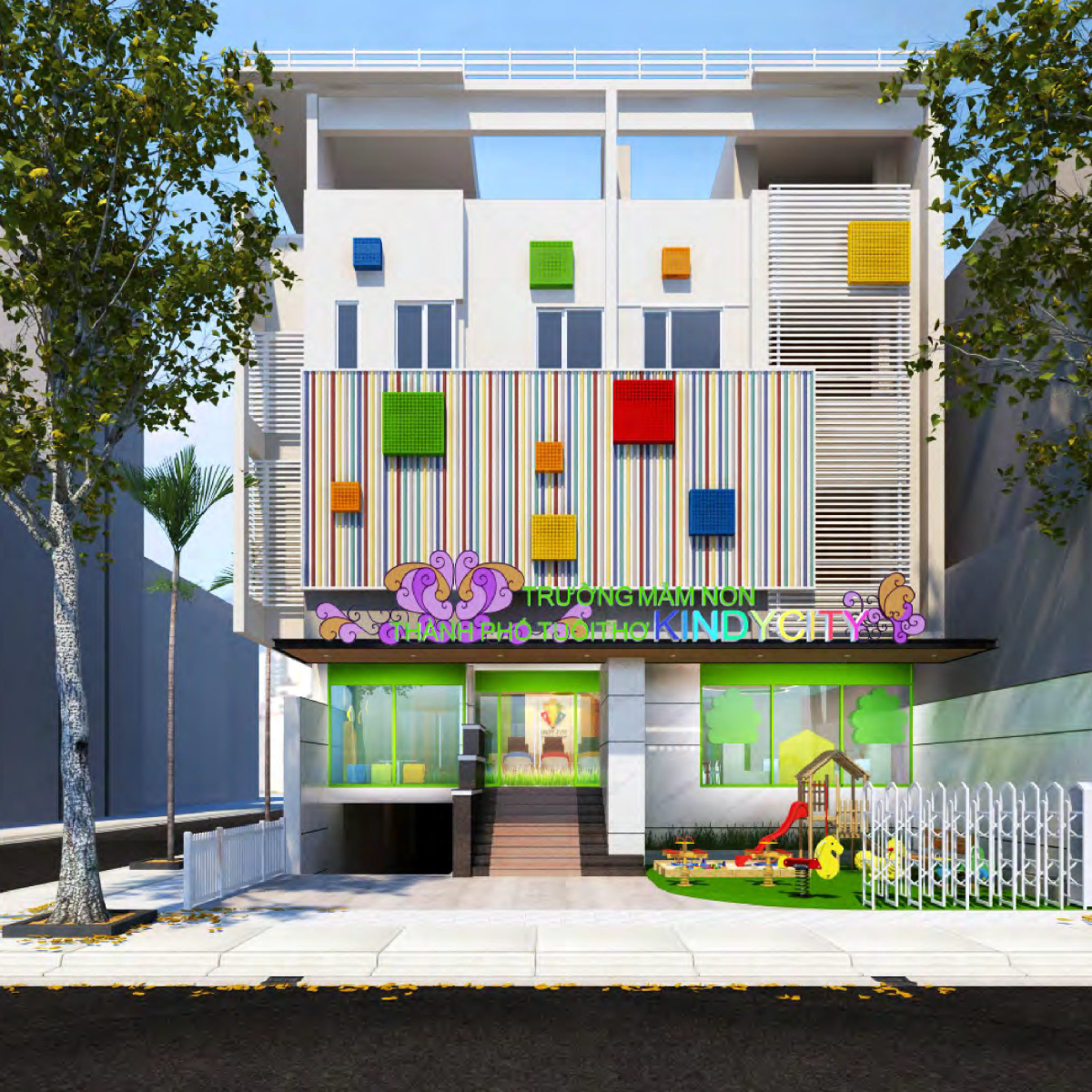Recently, all the teachers at Kindy City International Preschool participated in a refresher course – “Friendly environment in preschool”, which was coached by M.A Nguyễn Thị Kim Dung (manager of HCM‘s Preschool Department of Education and Training).
All teaching assistants, teachers and principals took part in this course.
More precisely, this says: Every day of going to school is a happy day. This sentence is based on Unesco’s saying “Education is not preparation for life, Education is life itself”. Firstly, preschool must create a friendly, safe environment and offer healthy activities for kids. Secondly, preschool should take initiative in the process of child development instead of depending on adults. Lastly, preschool must promote available potential to create essential skills for life.
Friendly and safe elements show not only in the natural environment (bright light, fresh air, clean water) and facilities (room equipment, playground, bedroom) but also in the social psychology atmosphere. The friendliness and safety of social psychology reflects on the positive relationship between teachers and children, children and their friends, teachers and parents, and among staff. Actually, the social psychology environment is the positive factor which promotes and supports the process of child learning and development, especially when the child feels relaxed, respected, cared for, and understood.
Below are 25 important elements to build positive relationships between teacher and child. These elements will create a friendly environment in preschool.
- Teacher as Reflective Decision-Maker.
- Every child feels loved and is treated fairly. Fairness is the foundation of good relationships.
- Always greet children with open arms, be a good listener to children and always call a child by name during conversation.
 |  |
- Build good relationships between children through collective activities.
- Focus on social skills in group activities (have to stay in line, allocate – cooperate – share job, mutual respect, resolve conflicts, control emotions).
- Do not interfere in activities of children if not necessary (focus more on observing, inspiring, or resolving conflicts between children).
- Respect the natural development, psychological age, personal traits (ability and personal traits in communication and language exchange). Accept children to learn from trials and errors. There is no need to over correct.
- Encourage children to be optimistic and confident in themselves (if a child encounters failure, cheer them up by saying: “never mind”, “do it again”, “slow down”, “you can do it”).
- Be patient with children, do not try to force and cause stress when a child is practicing skills.
- Accept diversity, respect personal opinion (teach children how to express opinion), avoid imposing to develop the habit of independent thought for children.
- Encourage children to show emotions, thought and confident expressions.
- Instruct children to become comfortable and confident when speaking in front of crowds (through performing on stage, in front of friends and strange people).
- Approach children without prejudice.
- Ban dangerous activities.
- Limit commands and increase encouragement.
- Instead of saying “You can’t do that”, we should say “This is how you should do it”.
- Be careful while evaluating a child, teachers should measure the progress of every child and compare with the average developmental stage at that age. The purpose of measuring is to help children to have a better development. We need to avoid the comparison between children, instead, we should always praise children for any progress they make, even disobedient children.
- Create chances for children to help themselves and to help each other according to their abilities.
- A student-centered approach is highly appreciated.
 |  |
- Always get self–access ideas from kids. Encourage students to make toys even teaching aids for themselves and take part in building up classroom environment.
- Balance between free activities and intentional educational activities.
- Don’t make kids stay in line if not necessary (when playing in the playground or performing).
- Do not bully, put down, or put blame on children (avoid repeatedly picking on a student), cannot hit students.
- Don’t ban children from defecating in class (nor recommend them to do that at home).
- Avoid sudden changes (to the new students or between in-class activities). Picking up can be organized flexibly.
The social – psychology environment isn’t built in a day, at the same time this environment can’t be built on one side, on the contrary, creating this surrounding is a long process and requires effort and consistency from multiple parties (teachers, staff, preschool management committee, parents, and children). With the goal to create a friendly environment, Kindy City International Preschool keeps enhancing the quality of training, strengthens the connection between teachers and parents and between teachers and children with the motto: “YOUR CHILDREN, OUR STUDENTS” for the best whole – child development.



